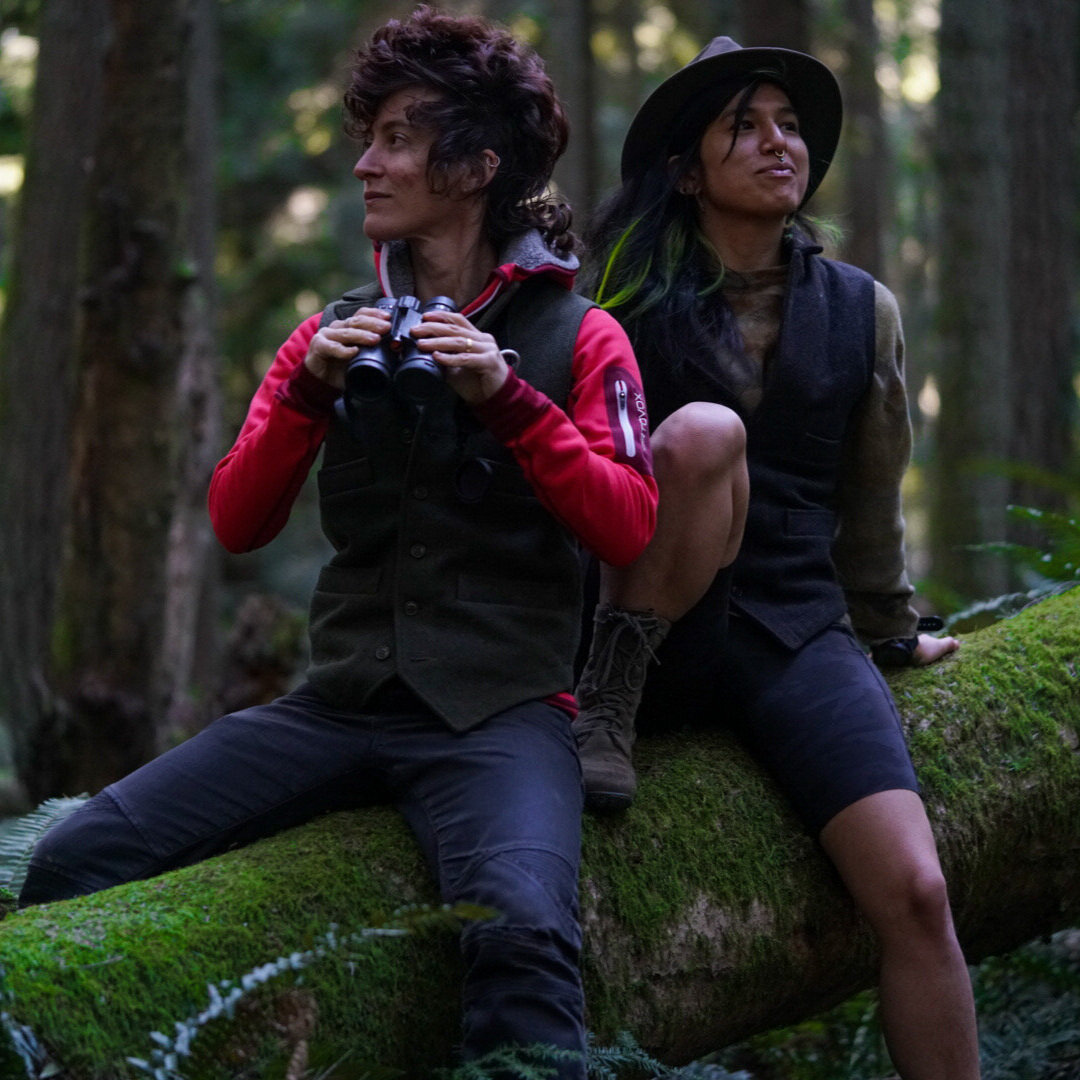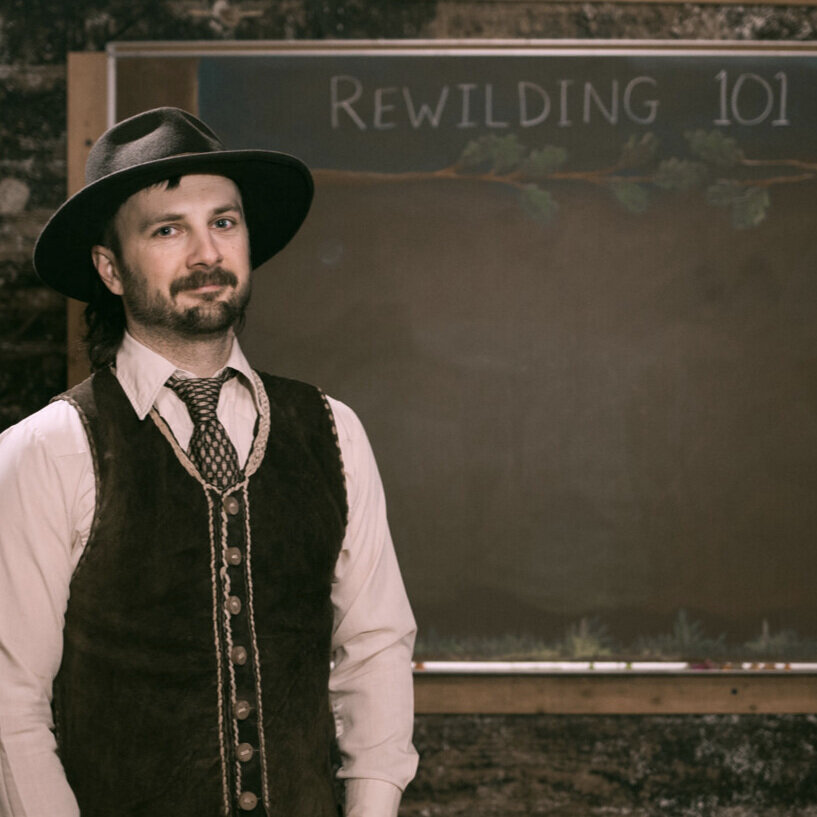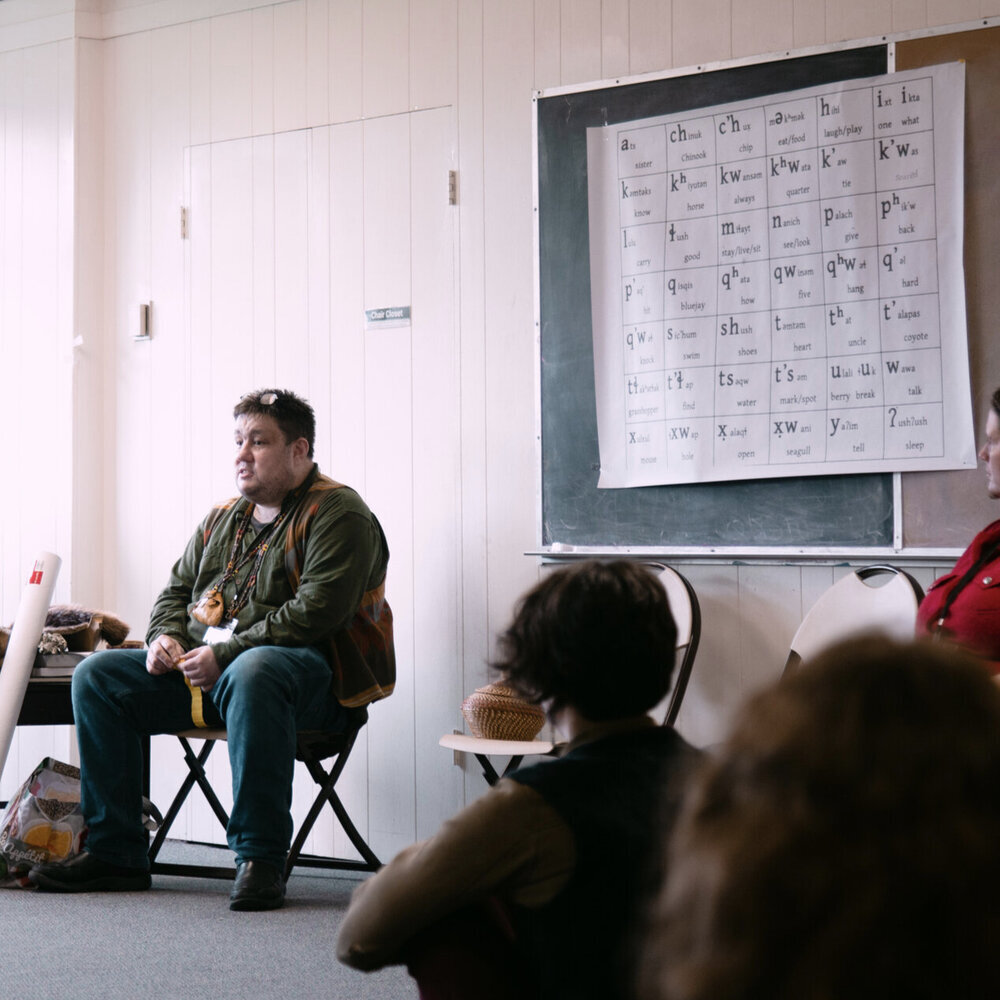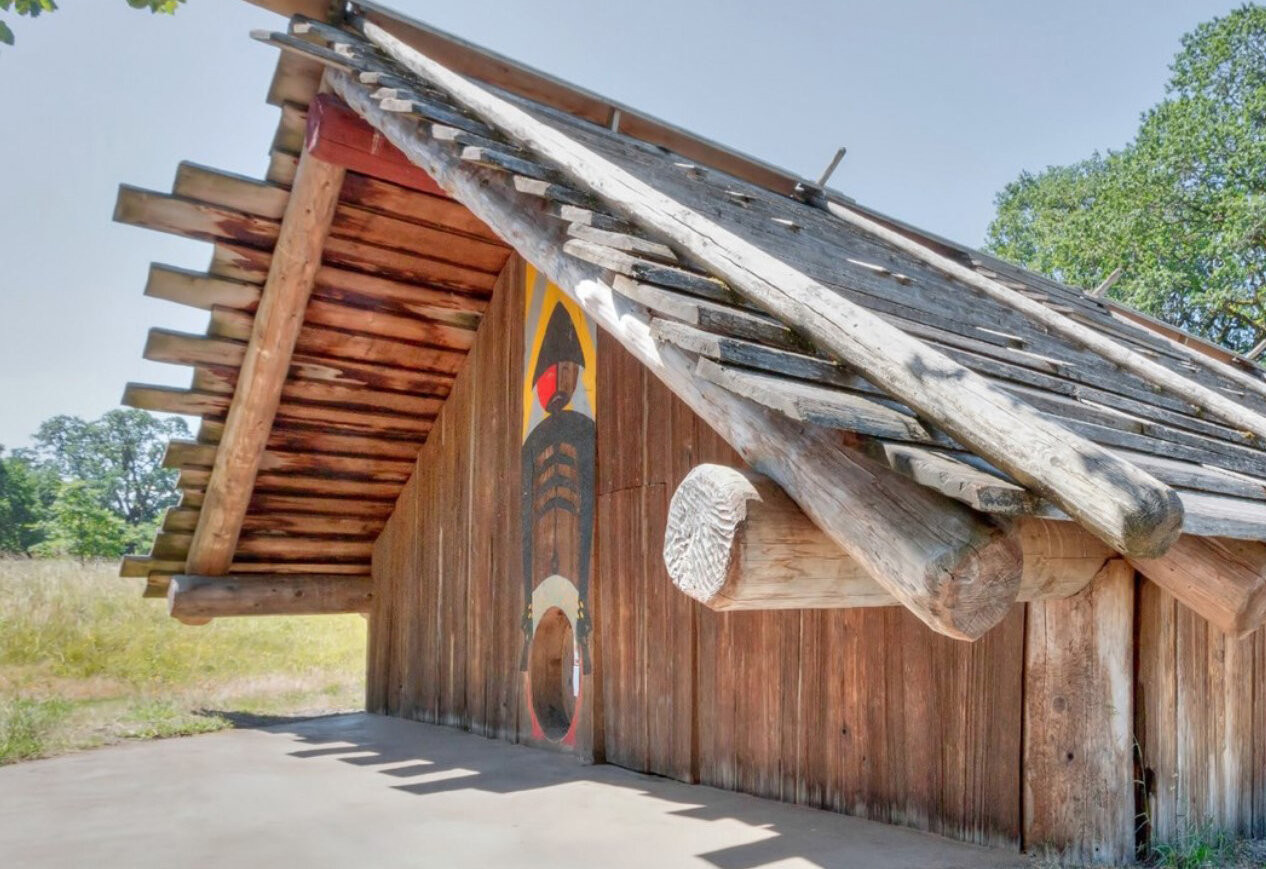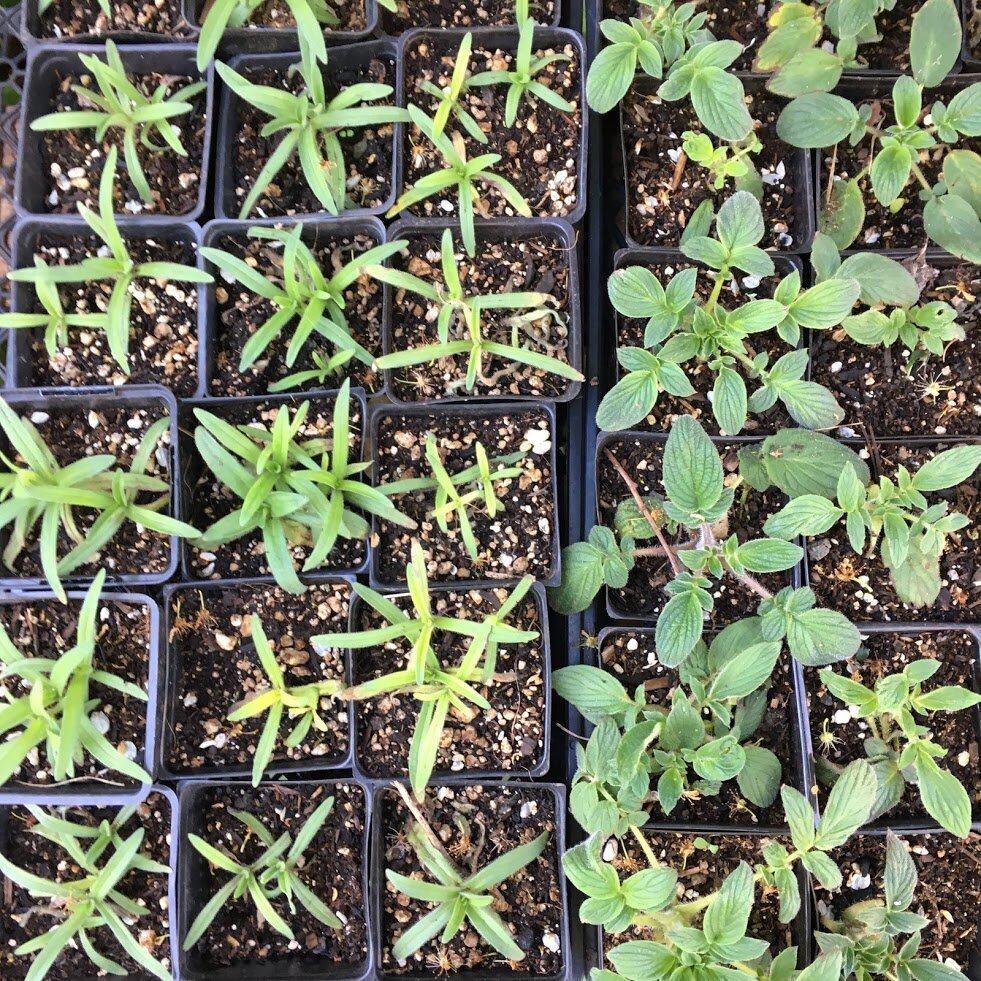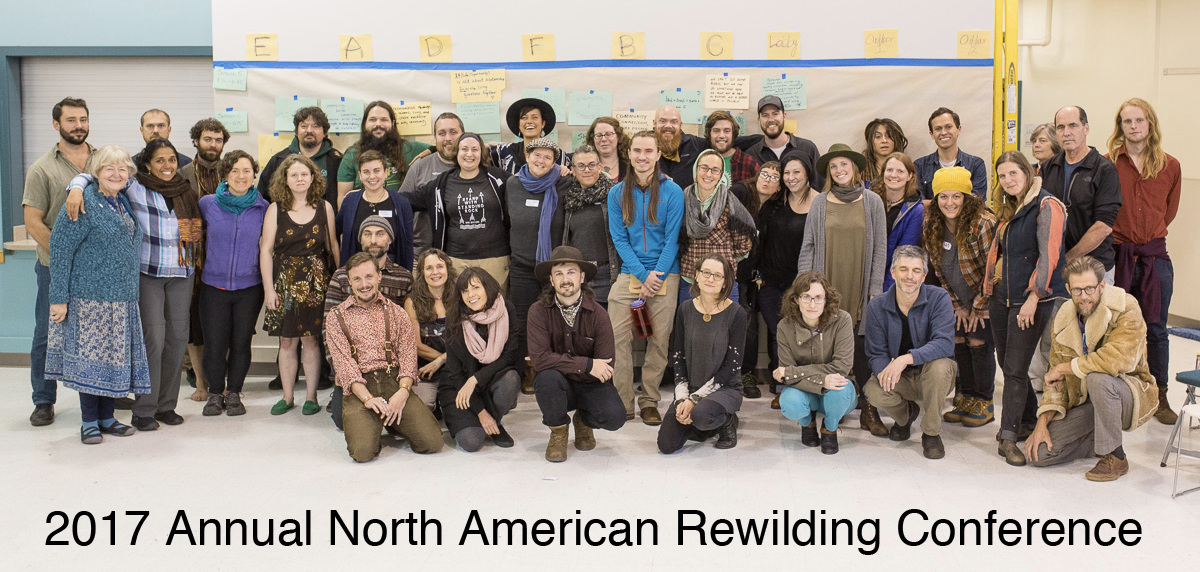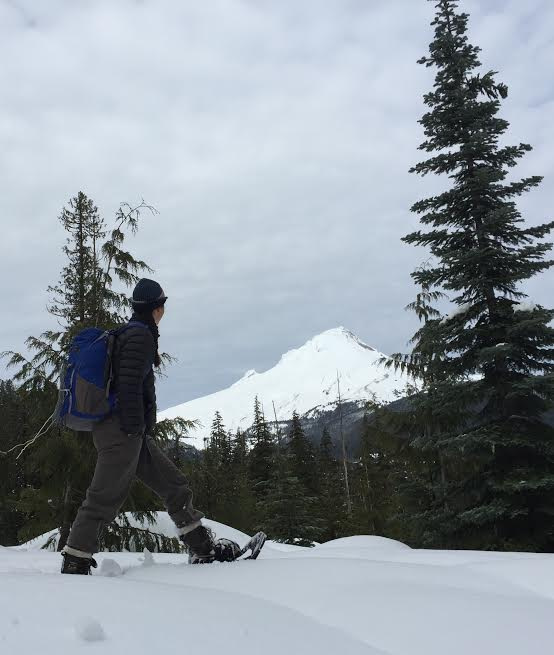
ARCHIVE
Previous Themes, Speakers, and Discussion
5th Annual
Keynote: Hazel Ward
Hazel is a long time resident of the Southern Oregon/Mount Shasta bioregion first settling here in the early 70’s, and has been advising farms, stewarding forests, and teaching Environmental Sciences for more than fifty years.
Their focus for this 21st century has been Social Forestry, restoring Oak/Pine Savannah in Little Wolf Gulch near Ruch, OR, demonstrating natural building, fuel hazard materials utilization, multiple products woods-crafting, wildlife support and desert forest water management.
As a youth, Hazel grew a vegetable garden from age five, trained in wildflower gardening with god-grandmother May Barton, taught two summers in the Nature Lodge at Camp Wakapominee, was an active participant in the life of their traditional culture, performed in a folk music trio with brothers Tim and Josh, and sang in choir and school sectional choruses.
During college, Hazel became an experienced winter mountaineer, water safety instructor, rock climber and caver, studied abroad and performed folk music in France during 1968, participated in Vietnam medical relief efforts, and managed to graduate under political duress.
After having earned degrees in Forestry and Systematic Botany from Syracuse University and SUNY College of Forestry, 1969, Hazel taught Wild Edible Plants and Woods-lore at Laney College in Oakland CA in the early 70’s. After helping Bill Mollison teach the first Permaculture Design Course at Evergreen State College in 1982, they have been instrumental in teaching and spreading Permaculture practices. They have taught at D-Q University in Davis CA, Thlolego Learning Centre in South Africa, Earth Passengers in Taiwan, Heartwood Institute in Northern California, Aprovecho Institute, and The Wilderness Charter School at Ashland High School, as well as at many other institutes and communities.
Hazel has taught dozens of Permaculture courses over the last 37 years, primarily in Southern Oregon and Northern California. These include the PDC, Permaculture Teachers Training, and advanced courses in Optical Surveying, Social Forestry and Farm Planning. They were a frequent guest instructor for Toby Hemenway PDC’s offered in the Northwest. Hazel holds four Permaculture Diplomas from Bill Mollison’s Institute, as well as two from the Permaculture Institute of North America. In conjunction with Siskiyou Permaculture, they now occasionally teach a local weekends PDC at various locations in Southern Oregon and advanced permaculture courses at Wolf Gulch Ranch in the Little Applegate Canyon. Hazel was once known as Tom and is the author of Greenward Ho! Herbal Home Remedies: An Ecological Approach to Sustainable Health.
Hazel has organized and supervised the development of several Permaculture Farms and woodlands including Whistling Duck Farm, Spirit Gardens, Star Gardens, Elk Dancing!, Wolf Gulch Farm, Seven Seeds Farm, and HerbPharm. They have also done hundreds of “walk through” farm and homestead brainstorms.
Hazel presents local talks and stories on topics such as Social Forestry, Ecological Opportunities and Constraints of the Upper Bear Creek Basin, Permaculture for the Masses, Becoming Indigenous to the Siskiyous, and Envisioning a Permanent Culture in the Rogue Valley. These storytelling events have unfolded visions of the Siskiyou/Mt. Shasta region in the 22nd century. You can find videos, audio recordings, writings, and articles at their website, siskiyoupermaculture.org.
Speakers
4th Annual
KEYNOTE: Queer Nature
Queer Nature
Queer Nature will be giving our keynote this year. Their program “envisions and implements ecological awareness and place-based skills as vital and often overlooked parts of the healing and wholing of populations who have been marginalized and even represented as 'unnatural.' Our curriculums necessarily go beyond recreation in nature to deep and creative engagement with the natural world to build inter-species alliances and an enduring sense of belonging.”
Keynote Title: Multi-species Animisms Through the Lens of Wildlife Tracking
"In this talk we hope to paint some pictures of how seeing the world as alive and inter-subjective (full of multi species and other-than-human souls and persons interacting with each other) is something that comes out of process, immediacy, and encounter—not a worldview that is necessarily learned through information, believed, and fixed. Wildlife tracking, which disrupts the contemporary binary between art and science, provides an ideal prism through which to approach how “animisms” might actually be ways of knowing that are emergent and also intensely local (and translocal). We ground this talk in tracking because this topic can become very abstract and generalizing, both of which do cultural harm and create only marginal opportunities for us to feel into other paradigms that may be central to building beautifully strange multi-species futures. We will also review the complexities and problems of animism as an anthropological category that can alienate and erase Indigenous people. In particular, it is important to discuss “animism” as politics—a more than human politics that is dangerous to various systems of power and oppression.”
Speakers
Field Courses
3RD ANNUAL
KEYNOTE: Greg Archuleta
Greg Archuleta is an enrolled member of the Confederated Tribes of Grand Ronde. He is descended from the Oregon City Tumwater and Clackamas Chinook, Santiam Kalapuya and Shasta. He is a former administrator and policy and planning manager for the Confederated Tribes of Grand Ronde. Today he works closely with the Tribe’s cultural departments to provide assistance related to the culture and history of the Grand Ronde Tribes of western Oregon. He provides community-based cultural arts classes related to traditional carving, Native art design, and basketry. These “Lifeways” classes have been ongoing for over 12 years. As an artist, he focuses on the Columbia River style art form. Today, Archuleta is the Cultural Policy Analyst for the Confederated Tribes of Grand Ronde and works on enhancement, education, and outreach activities related to the Cultural resources of the Tribe.
SPEAKERS
2nd Annual
Keynote: David G. Lewis
David G. Lewis is a Member of the Grand Ronde Tribe, a descendant of the Santiam, Chinook, and Takelma peoples of western Oregon. He has a PhD in Anthropology and teaches at Oregon State University. David regularly conducts research on tribal peoples of Oregon and specializes in western Oregon and the ethnohistoric environments and changes of the tribes in the last two centuries. He publishes extensively on the blog site ndnhistoryresearch.com.
Speakers
1st Annual Conference
Theme: “Restoration to what?”
We talk a lot about “restoration,” but what are we trying to restore to? A certain time in history? A specific ecotone from a specific era? A diet from a specific time and bioregion? If the world has changed due to extinctions, introduction of invasive species, and climate change, what then do we mean by restoration? What does it look like? What exactly are we restoring, and what are our actual goals? Do we have commons goals to work toward together? If so, how can we encourage each other's efforts? This theme was inspired by the advanced permaculture course Social Forestry offered by Hazel (Tom Ward) at Siskiyou Permaculture.

